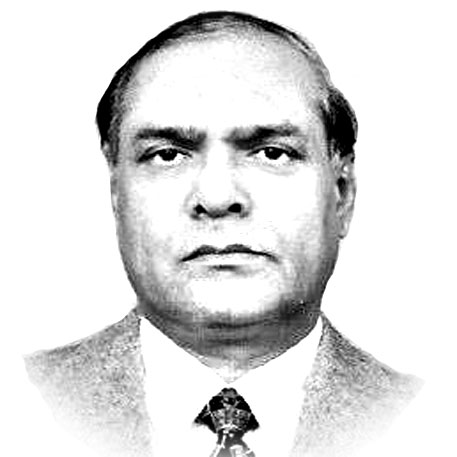Rashid A Mughal
THE biased attitude of the western countries, dancing to the tunes of Indian mechanizations were in play conspicuously and so very obviously at the last FATF meeting at Paris last week. The Indians rejoiced as once again Pakistan could not come out of the grey list. Regretfully some of the “close friends” did not vote for Pakistan and choose to stay away which in other words means fulfilling the Indian agenda and perhaps Trumps-Modi joint plan of action. Pakistan got a breather for four more month, till February next year, to complete action on a few remaining points. Out of 27 points which Pakistan was supposed to address, 21 points were accepted which in the face of hostile and prejudiced FATF attitude was perhaps a big achievement. The watchdog also put a general pause in the review process. To avoid the blacklist, Pakistan needed the support of three countries and it was consistently backed by China, Turkey and Malaysia to dodge the label. Currently, North Korea and Iran are in the FATF blacklist. Pakistan needed 12 votes out of 39 to exit the grey list and move to the white list.
Pakistan was placed on the grey list by the FATF in June 2018 and was given a plan of action to complete it by October 2019. Since then, the country continues to be on that list due to its failure to comply with the FATF mandates. The FATF is an inter-governmental body established in 1989 to combat money laundering, terrorist financing and other related threats to the integrity of the international financial system. It currently has 39 members including two regional organisations – the European Commission and Gulf Cooperation Council. India is a member of the FATF consultations and its Asia Pacific Group. Last February, Pakistan secured extra four months to complete the plan after missing 13 of the 27 targets that FATF had set for it in 2018 when it put Pakistan on its “grey list”. The grace period was then extended again because of the coronavirus pandemic. The so-called “grey list” comprises countries whose controls over “terrorism” financing are deemed inadequate.
“The government of Pakistan has signalled its commitment to complete the rest of its action plan. But it is clear even though Pakistan has made progress, it needs to do more,” FATF President Dr Marcus Pleyer said at the conclusion of a virtual meeting. According to reports, “big four” ( USA, UK, France and Germany), the nominating countries, were not fully satisfied with Pakistan’s role in Afghanistan, sources said and according to them Pakistan had so far failed to effectively crackdown on means of financing terror activities and money laundering. With Pakistan remaining in the grey list, it has become increasingly difficult for it to get financial aid from the International Monetary Fund (IMF), World Bank, Asian Development Bank (ADB) and the European Union, exacerbating funding problems for the country. The decision was taken at the end of the three-day virtual plenary of the FATF that was earlier scheduled in June. Pakistan got an unexpected breather after the global watchdog against financial crimes temporarily postponed all evaluations and follow-up deadlines in the wake of COVID-19 pandemic. Pakistan will remain on a terrorism financing watch list until it completely implements a set of preventive guidelines, the global watchdog said, urging Islamabad to improve financial controls. The so-called “grey list” comprises countries whose controls over “terrorism” financing are deemed inadequate. However, the Financial Action Task Force (FATF), praised Pakistan for progress on 21 of 27 recommendations but said the rest must also be implemented.
“The government of Pakistan has signalled its commitment to complete the rest of its action plan. But it is clear, even though Pakistan has made progress, it needs to do more,” FATF President Dr Marcus Pleyer said at the conclusion of a virtual meeting in Paris, recently to discuss global financial systems including terror financing. “Pakistan cannot stop now. It needs to continue to carry out reforms, in particular to implement targeted financial sanctions and prosecute and sanction those financing terrorism,” FATF President said. Pakistan’s Foreign Minister Shah Mehmood Qureshi said ahead of the decision that regional rival India was lobbying for downgrading country to a more punitive “blacklist”. Asia Pacific Group, a regional affiliate of the watchdog, had recommended keeping Pakistan on the grey list because there were still risks of terrorism financing going undetected. Pakistan had been on the FATF blacklist for years before it was removed in 2015 following “significant progress” in fighting terror financing. Only Iran and North Korea are currently on the blacklist.
To some the decision of FATF was expected. If one tries to go deeper into the matter, the changing political, economic and foreign policy dynamics in the region are perhaps the reasons for tightening noose around Pakistan. China and Pakistan are getting closer and the “big powers” are definitely not comfortable with this development. Pakistan enjoys excellent relations with Turkey which has always supported Pakistan at international forums, notably Kashmir and this too has become a “irritant” for India and some other countries in the region, backed by USA. Every effort is being made by enemies of Pakistan to create hurdles in its economic development and progress. Some time they take the shape of “Pressler Act” or in the shape of embargo on shipments to Pakistan and withholding assistance on agreements, already reached and imposing sanctions. But Pakistan faced such challenges successfully and has come out of it. Hopefully when the FATF meets in February 2021, Pakistan will complete action on the remaining six points and will come out of the grey list which will be a big setback for enemies of our beloved land.
— The writer is former DG (Emigration) and consultant ILO, IOM.










